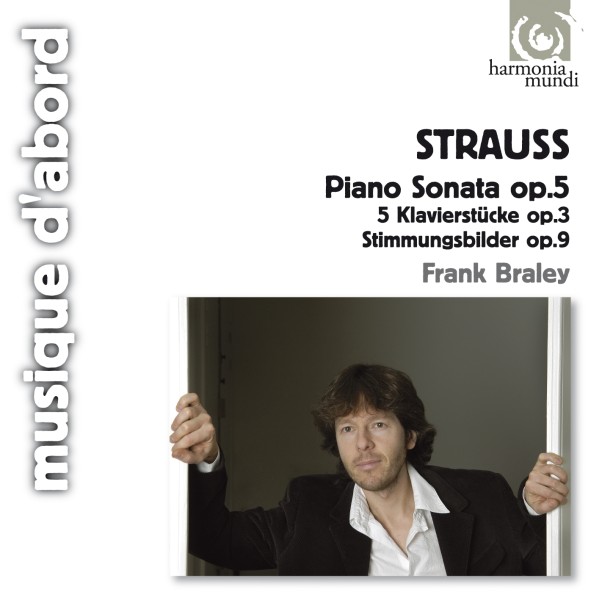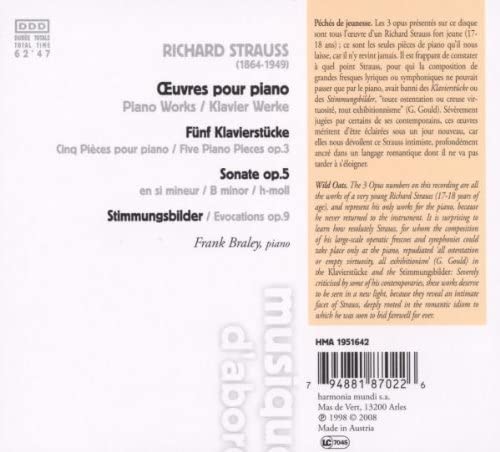
classical music distribution


(Produkt nie został jeszcze oceniony)
kompozytor
Strauss, Richard
tytuł
STRAUSS: Piano Sonata op. 5
wykonawcy
Braley, Frank
nr katalogowy
HMA 1951642
opis
It is fascinating to hear the ‘immature' music of a famous composer. All of it here was written before Strauss turned 18, and the curious thing is that the earliest pieces, Op. 3, seem somehow the closest to the developed master we either love or loathe. It's easy to explain why the Sonata, mainly composed when Strauss was only 16, is the least characteristic work. Not only was the composer very young, but he was also trying hard to match up to expectations and fill received forms. The first movement is self-conscious and stiff, with an ambitiously exploratory development section descending into tonally remote depths before Strauss dutifully pulls himself together for the recapitulation. The second movement is innocuous, though with an unusual middle section, the scherzo brief and assured, and the finale offers very occasional glimpses of the later Strauss. •
It is no surprise that the decisive influences are Schumann and Brahms, though in the third and fourth of the Op. 9 pieces Strauss is willing to indulge his own brand of winsome harmony, and savour a saucy progression to a decadent degree. •
The recording is ideal, and this young French pianist, who made his recording debut with a Schubert disc for Harmonia Mundi, is an exquisitely polished player. •
Performance: 5 (out of 5), Sound: 5 (out of 5) •
-- Adrian Jack, BBC Music Magazine
nośnik
CD
gatunek
Muzyka klasyczna
producent
Harmonia Mundi
data wydania
13-12-2007
EAN / kod kreskowy
794881870226

(Produkt nie został jeszcze oceniony)
cena 25,00 zł
lubProdukt dostępny.
Wysyłka w ciągu 3 dni roboczych
Darmowa wysyłka dla zamówień powyżej 300 zł!
Darmowy kurier dla zamówień powyżej 500 zł!
sprawdź koszty wysyłkiProduktu jeszcze nie zrecenzowano, chcesz być pierwszy?
Klienci, którzy kupili ten produkt, kupili również
Vivaldi, Antonio
Vivaldi: Complete Concertos and Sinfonias for Strings and Basso Continuo
95835
Liszt, Franz
Liszt: Via crucis, Le crucifix, Die Seligkeiten, Nun danket alle Gott
HCD 32685
różni kompozytorzy
Women at the Piano • 5, An Anthology of Historic Performances 1923-1955
8.111219
Pozostałe płyty tego kompozytora
Strauss, Richard, Strauss, Franz
Strauss, Franz & Strauss, Richard: Horn Concertos
PC 10312
różni kompozytorzy
Great Conductors - Furtwängler: Early Recordings Vol. 4 - WAGNER, BRAHMS, J. STRAUSS, R. STRAUSS
8.111005
Pozostałe płyty tego wykonawcy
Napisz recenzję dla: STRAUSS: Piano Sonata op. 5
Zapytaj o dostępność produktu
Twoje zapytanie:
Odpowiemy na adres:
Produkt został dodany do koszyka

Strauss, Richard
STRAUSS: Piano Sonata op. 5
1 szt






































